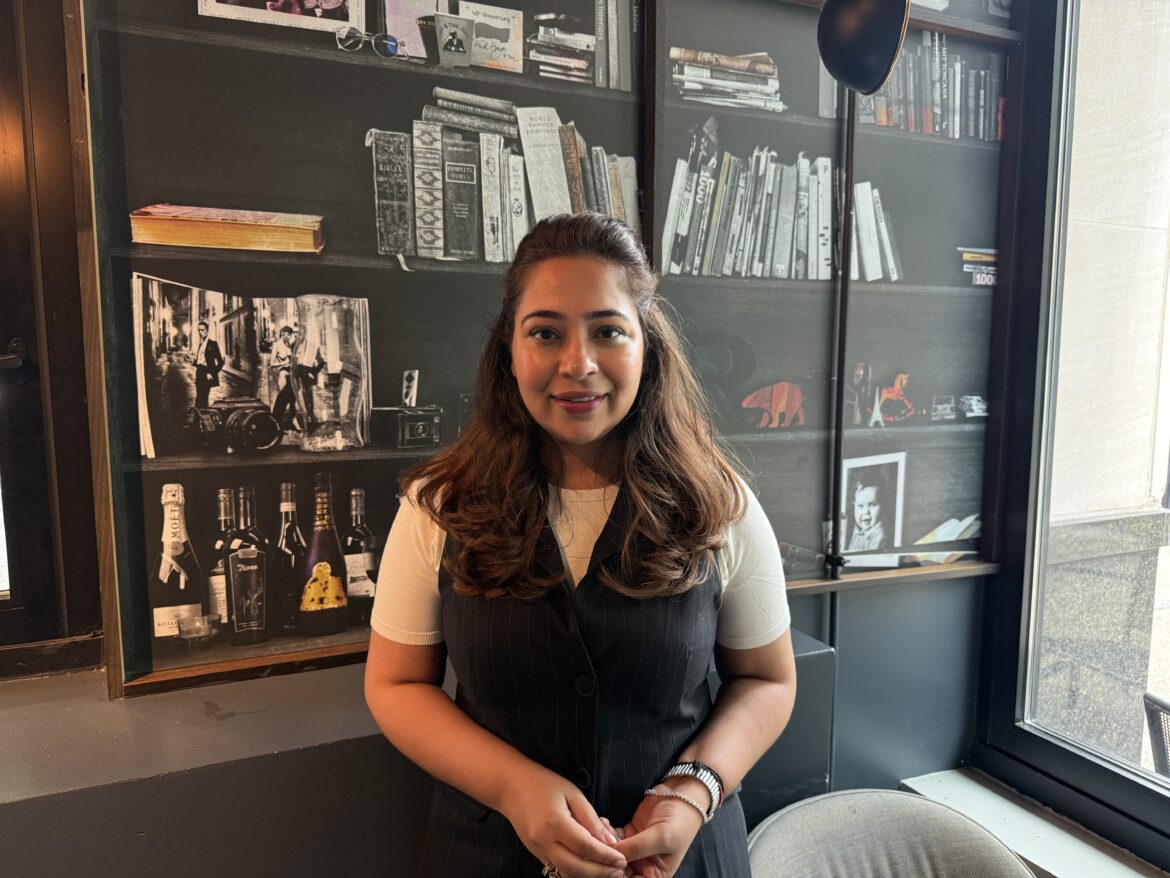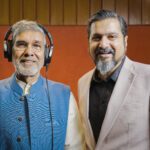Founder and Director of the Vishwamitra Research Foundation (VRF) Bharat, Priyam Gandhi-Mody, emphasized the need to distinguish between “posturing and reality,” in the context of India-U.S. relations, noting that despite perceived political rhetoric, bilateral cooperation is grounded in substantial engagement.
“The reality is that India and the United States are engaged in $200 billion dollars of trade annually,” she pointed out, adding that the importance of the U.S. to India is matched by India’s strategic relevance to the U.S.
“While the posturing may look a little bit different, I can assure you that where conversations matter, things are being dealt with utmost seriousness. I think the U.S.-India relationship has the potential to do bigger beneficial things for global good. And I think that’s the general direction we’ll continue to take,” Gandhi-Mody told South Asian Herald in an exclusive interview.

Gandhi-Mody was recently in the United States to strengthen relationships between existing partners in key areas aligned with VRF’s mission, including trade corridors and emerging technologies. As part of the Mumbai-based think tank’s geo-economic mandate, she held strategic discussions with leading think tanks and congressional leaders in Washington DC, New York, and San Francisco.
At the recent India–Middle East–Europe Economic Corridor (IMEC) Summit held in Mumbai, Gandhi-Mody described IMEC as a “game changer.”
She explained, “So basically, what IMEC does is awaken an ancient civilizational memory. We’re not doing anything new; we’re just reawakening something that we have already done. So, we know it works, and it will work.” She added, “Why is it game changing? Because it reconnects parts of the world that seemingly have distanced themselves, and it will bring those parts of the world closer, with a common goal of economic upliftment for everybody along the route.”
According to her, India and the U.S. have several aligned areas of interest that need further cooperation, ranging from trade corridors like IMEC to technology collaboration under the U.S.-India TRUST initiative. She stressed the need for more frequent engagements and trust-building initiatives between governments and private sectors of both nations.
Speaking on the I2U2 alliance, comprising India, Israel, the UAE, and the U.S., Gandhi-Mody said the bloc is working collaboratively on new technology frontiers including responsible artificial intelligence, space exploration, deep-sea research, and sustainability. She expressed optimism that such efforts will solidify over time.
In a recent op-ed, Gandhi-Mody criticized Congress Parliamentary Party Chairperson Sonia Gandhi’s remarks on India’s foreign policy as “ill-informed.” She explained during the interview, “Sometimes, foreign policy cannot be passionate. It has to be looked at from the eyes of something that is of the best national interest. If we were to implement many of the suggestions that Mrs. Gandhi and her party have been making for India’s foreign policy response, we could have seen many, many debacles.”
In the same op-ed, Gandhi-Mody wrote that “India’s strategic silence is a sign of its growing stature.” When asked to elaborate, she maintained, “Our foreign policy currently, which is strategic autonomy, allows us to speak when we’re sure that our voice is going to be heard,” adding “It allows us to act when we know that our actions are going to be beneficial, prioritizing our national interest. And obviously the opposition doesn’t see it that way. So, I think Mrs. Gandhi’s piece was just a little bit too passionate.”
About India’s leadership role on the global stage, she cited India’s diplomatic engagement with nations involved in current global conflicts such as Russia, Ukraine, Israel, and Iran. She noted that India maintains open lines of communication with all, emphasizing national interests like protecting Indian nationals abroad and ensuring supply chain stability.
She also highlighted India’s global economic position, noting that the country is now the fourth-largest economy and is maintaining its own growth trajectory. “We have our own challenges, and we have our own priorities when it comes to the speed and the pace of economic growth, and I think we should just stay focused on that… our agenda is to grow and not get into other people’s wars,” she said.
On India’s goal to become a developed nation by 2047, Gandhi-Mody expressed full confidence. “Yes, absolutely. So, when we say Viksit Bharat 2047, it’s not just a mere tagline,” she said, pointing out that all arms of the government, semi-diplomatic platforms, and social service organizations are working in tandem to achieve that vision.
Quoting Prime Minister Narendra Modi’s statement to Russian President Vladimir Putin, “This is not an era of war,” she added, “This is an era to grow. And when India grows, we take the world along.”






